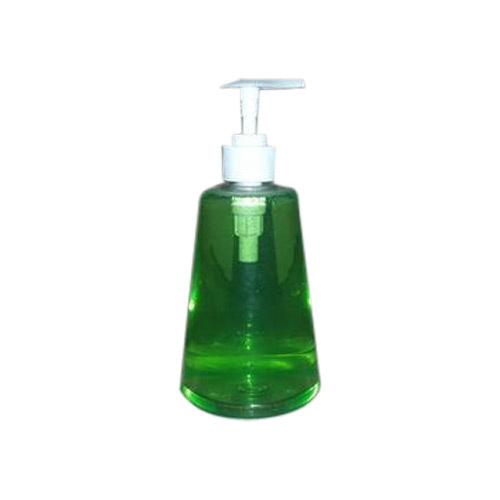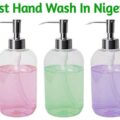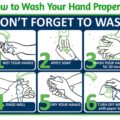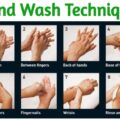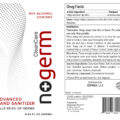Hand wash is a liquid soap formulated to wash and clean hands. Liquid hand soap is the best-selling and most widely used in detergent products groups. Liquid hand soaps may have different features depending on content. Germs from unwashed hands can be transferred to other objects, like handrails, table tops, or toys, and then transferred to another person’s hands. Removing germs through hand washing therefore helps prevent diarrhea and respiratory infections and may even help prevent skin and eye infections. In this article we will discuss how to make hand wash commercially and how to make hand wash for home or personal use.
What are the different types of hand wash?
There are variations, such as for children, opaque, with glycerine, with antibacterial, transparent etc. Another categorization of hand wash is based on purpose, on this yardstick they are categorized as follows
Routine, or social
This type of hand washing involves the use of soap and water. People perform this type to remove visible dirt, after using the toilet, before preparing food, and at other times. It usually lasts a few seconds.
Antiseptic
This type of hand washing uses water and antimicrobial soap. It removes or destroys microbes on the skin. Medical professionals may use this method before touching a high risk patient, or after contact with a person with an infection.
Surgical
Medical professionals perform this hand washing, involving water and antiseptic soap, before all surgical procedures. It lasts for at least 2 minutes.
We all tend to use a lot of hand soap daily, but we don’t really give a thought to it. Why? Because there are so many other things to take care of and to think about that the amount of hand soap used in a day never really concerns us. We buy it from a nearby grocery store that sells personal care products and buy refill packs again and again. But is that store-bought liquid hand wash really good? Store-bought hand soaps contain chemicals in them and they may not be good for your skin. So, how about you make hand soap at home? Homemade hand liquid soap will be chemical-free and you can make it easily.
Benefits of Homemade Hand Wash
Making your own hand wash at home is better than buying commercial products. Here are a couple of benefit of using homemade hand wash when compared to commercial products:
Suits Different Skin Types
If you’ve dry or sensitive skin and you use a store-bought hand wash, it might harm your skin. The ingredients in the commercial products can worsen the matter. Some commercial products may contain hidden ingredients or chemical that can be harmful to your health, but you don’t have to worry about those things when you make your own liquid hand wash at home. When you use natural ingredients, you won’t have to worry about skin problems.
You Will Save Money
You can buy raw ingredients and make your own liquid soap at home. If you buy in bulk, you will be able to use the ingredients even later and it will save you a lot of money.
Your Hands Will Glow
Essential oils, when combined with natural ingredients like liquid castile soap and probiotic soap bars, can give you soft, supple, and flawless skin. Your hands won’t feel rough. Liquid soaps made with essentials oils and other natural ingredients are gentle too unlike commercial products which can sometimes be harsh.
How To Make Hand Wash for Commercial Purpose In Nigeria
Materials for making hand wash
- Sufficient quantity of Aloe Vera gel
- Isopropyl alcohol or sufficient amount of ethanol
- Anti-bacterial oils such as Peppermint or Lavender
- Funnel
- Bowl
- Container in which the finish product will be contained
- A spoon for measuring the quantity of elements to put in the mixture
Proportion of each of the requirements
When making hand wash, the ingredients must be mixed in the right proportion to get the best results.
- You need about two-thirds of a cup of the isopropyl alcohol or ethanol
- You need one-third of a cup of the Aloe Vera gel
- You also need at least 250ml of the Lavender or Peppermint oils.
Hand wash production process
- First of all you will assemble the ingredients in their right proportion
- Then you can mix the oils, the ethanol or isopropyl alcohol and the aloe Vera together inside the bowl and stir with the spoon.
- After stirring the mixture, pour it into the container intended for keeping it, such as a spray bottle.
- Your hand wash is then ready to be used or sold.
Note: You only need to add at least 10 – 15 drops of the oils (Lavender or Peppermint oil) into the mixture.
Home Hand Wash Recipes
Are you planning to make hand wash at home? If yes, then try the recipes mentioned below. It won’t take you a lot of time, and you will find the raw materials in your nearby grocery store.
- Liquid Hand Wash
Try the recipe mentioned below to make a hand wash at home.
Requirements
- A probiotic soap bar
- Water
- Essential oils of your choice
Method
- Take about 1/4th section of the probiotic soap bar.
- Fill a pan with distilled or mineral water.
- Bring the water to a boil and add in the soap bar.
- Stir continuously over medium flame and keep stirring until the soap liquefies.
- Remove from the heat and let it sit for 24 hours.
- Add a few drops of essential oil once it’s ready.
- Shake well in a spray bottle and use this liquid hand wash whenever you want.
If you want to make a customized soap, don’t use probiotic soap bar, use unscented one instead. If you want a liquid hand wash with antibacterial properties, use an antibacterial soap bar in the first recipe. If you have dry skin, you can opt for moisturizing soap bars to make liquid hand wash.
Washing Up Liquid/Dish Soap
- 3 tbsp liquid Castile soap
- 2 cups warm water
- 2 tsp glycerine
- 2 tbsp. white vinegar
- 10 drops lavender essential oil.
The lavender in this recipe makes the water smell lovely, and also has anti-bacterial properties. The scent doesn’t linger on the dishes, however.
Store your liquid soap in mason jars or glass containers. Remember to use them up in a year or less. As they don’t contain any preservatives, they have a short shelf life. But the good news is they can stay fresh for some time.
This is pretty much all you need to know when it comes to making your very own liquid soap. Yes, it’s easy and also good for your skin. Now that you’ve learned the art of making liquid soap, we encourage you to get creative and customize these recipes. Experiment with different soap bars and essential oils but always make sure that the soap bars you buy are organic and sourced naturally. SEE: 10 Importance Of Hand Washing In Nigeria

